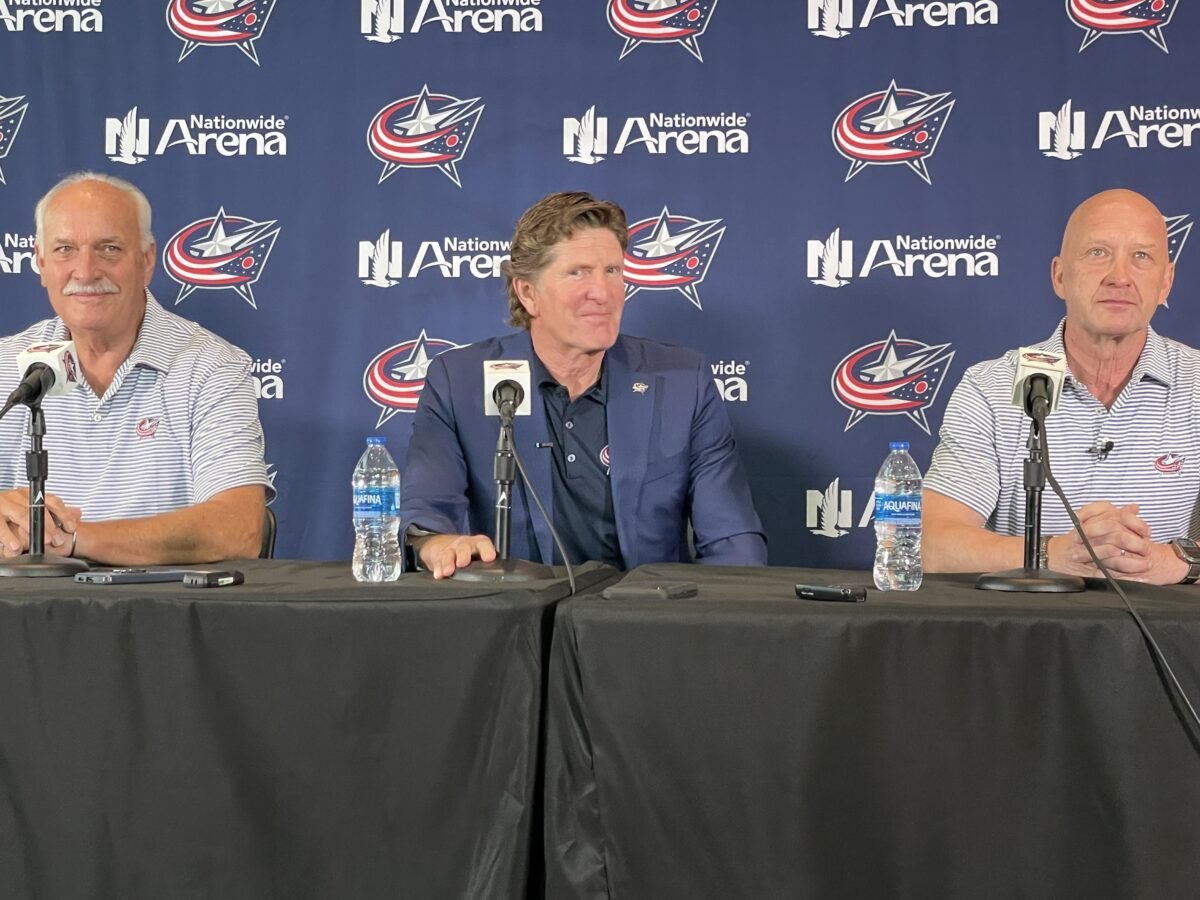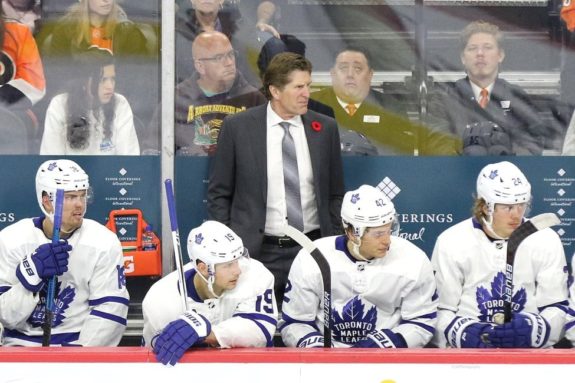It’s a well-known reality that Mike Babcock’s time in Toronto came to an abrupt, fiery ending. Media reports about his treatment of certain players were not flattering, to say the least. A few weeks ago, the Columbus Blue Jackets officially announced him as their new head coach. He signed a two-year deal, which both he and Jarmo Kekalainen considered to be a “perfect fit.”
So what changed in the last three years since Babcock was behind the bench in Toronto? How did he go from being seemingly blacklisted to being back in the fold? We’ll take a look at some notable comments from Babcock in his press conference and what he feels like he learned in the last three years.
Where Has Babcock Been?
Babcock stated that he realized it was time for change and he needed to grow. He said he recognized this after his stint in Toronto came to an end. It was time for him to get an outside perspective and learn more about how he could successfully coach this younger generation. He quoted his daughter, in her 20s, saying “It’s not what you say, it’s your tone.”
Babcock spent last season as head coach at the University of Saskatchewan (CIS). Before that, he was a senior advisor with the University of Vermont (NCAA DI). At both of these stops, he was working with much younger players that were also balancing a full course load of academic work. While hockey is a top priority and many will move on to play professionally, these are not paid athletes who are under contract.
Back to His Roots
Something I imagine most of us did not know about Babcock is that he got into coaching through education. He taught at a secondary school in Montreal early in his career and then taught at both the University of Lethbridge (Alberta) and Red Deer Polytechnic (Alberta). He made a point to say that he really defines himself as a teacher.

As a result, Babcock says the last three years for him were exhilarating. Not only did he have more time to spend with his family, he was able to get back to his roots in education. He considers himself to be “a lifelong learner pursuing knowledge”, so the university setting was perfect.
During this time Babcock was surrounded by an academic atmosphere unique to universities. Experts from all walks of life are plentiful on college campuses and he spoke of how much these people were able to teach him and help him get better. Improving his communication skills is something he credits to the different experts he was surrounded by at these two universities.
What the College Kids Taught Him
Babcock talked about how ten years ago, it would have been impossible for him to speak about communication, development, and mental health the way he can today. He simply didn’t know. And given the paradigm shift where player needs are being valued much higher today than they were before, I think we can see where he’s coming from. He went on to explain that coaching in college was a huge growth opportunity.
To me, this is really cool to hear. It’s not often you find an NHL coach willing to take a step back and learn from non-hockey people in a university. Having set out with the intention of learning more about himself, it seems he found a great breeding ground for this in the college environment. I have no doubt that many of the lessons learned at these two universities can absolutely be applied to the NHL and the players at this level. Communication and player development, for example, are staples of coaching regardless of whether you’re coaching university or NHL players.
Another interesting learning lesson Babcock brought up was on the topic of how to treat players. He mentioned how in college hockey you have 23 players that require 23 different approaches. It’s not possible to treat every player the same way and just because two guys are the same position, or close in age, it doesn’t mean you can approach them the same. Understanding how to communicate with each player and what their needs are has helped him grow tremendously. It appears that Babcock received a master class in approaching players as he again mentioned the importance of communication.
Babcock’s NHL Return
So how did he find his way back to the NHL? Kekalainen and Babcock mentioned their longstanding relationship from years of working with various teams in the NHL. Once Babcock’s son, also named Mike, got involved with doing some video work for the Ottawa Senators, he found himself excited about the NHL game again.

The biggest thing Babcock mentioned was that he would only return to the NHL if he could find pure joy in it. He would not contemplate it just to prove something to people, such as that he could win at this level. Kekalainen stated that Babcock was highly recommended by many within the NHL, such as former Blue Jackets head coach and Hall of Famer Ken Hitchcock. Babcock also said he received multiple calls from former coaches here in Columbus and everyone had great things to say.
Related: 4 Blue Jackets Who Could Thrive Under Mike Babcock
For him, the opportunity to return to the NHL made sense. An organization he trusted, people he felt he could learn from and a city he remembers being a great sports town added up to an enticing opportunity he did not want to pass up.
What to Expect From Babcock
One question Babcock was asked in his press conference was how he defines success. In his words, he believes it is helping all team members get better and being passionate about improving. From a coaching perspective, this is gold. If every player can get better as the season goes on, it’s highly probable that the team will improve also. Taking an individual approach to improvement is necessary in today’s game and it appears that Babcock has a good understanding of this.
Having said all of this, I think the bar is set pretty high for Babcock and what we can expect to see from him, from a coaching perspective. He talked extensively about communication, player development, and relationships. These are all very important aspects of the team game today. At the same time, they can be buzzwords too.

What remains to be seen is how genuine this approach is and whether or not Babcock will be able to implement the lessons learned over the past few years in the heat of the moment, at the highest level of hockey in the world. It’s easy to answer questions in a press conference, it’s harder to put them into practice on a daily basis.
In my opinion, results are secondary in this regard. If Babcock is a changed person and has the ability to relate to players today, the results will follow. The players will believe in him and the team’s goals as they will trust him and his intentions. In this sense, the players will serve as the jury. It is my belief that these next two years under Babcock will be pivotal for the future of the Blue Jackets. However, only time will tell how this will play out for him, the players, and the organization.
